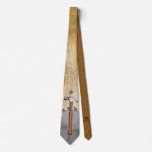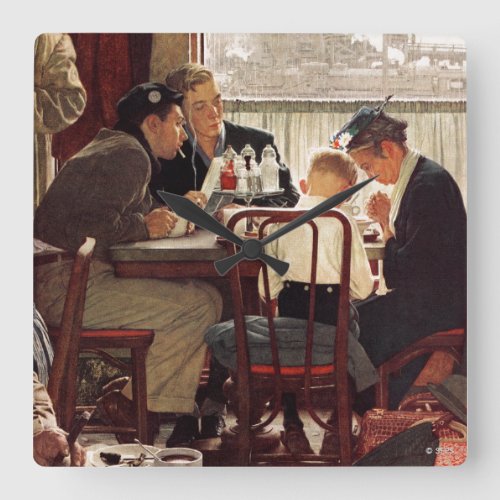 Variety has reported on the Tesuque Pueblo tribe of New Mexico, which recently re-opened a former gaming casino as a 75,000-square foot production facility, becoming the first movie studio to be owned by a Native American tribe. According to the report, the move comes amid a booming production growth in the state of New Mexico.
Variety has reported on the Tesuque Pueblo tribe of New Mexico, which recently re-opened a former gaming casino as a 75,000-square foot production facility, becoming the first movie studio to be owned by a Native American tribe. According to the report, the move comes amid a booming production growth in the state of New Mexico.
The idea to open a film studio began when the Tribe relocated their casino to another location and quickly realized the building could be repurposed as a studio facility. The effort officially took shape last fall, when Universal Pictures’ News of the World, starring Tom Hanks, filmed at the location.
Camel Rock Studios – named after a nearby rock formation – soon launched in the foothills of New Mexico’s Sangre de Cristo Mountains, just north of Santa Fe. There have been reportedly more than 20 productions shot on Tesuque Pueblo land, including 1955’s The Man from Laramie with James Stewart & Arthur Kennedy, 1958’s Cowboy starring Glenn Ford & Jack Lemmon, and more recently Cowboys & Aliens in 2011 with Daniel Craig & Abigail Spencer and Hostiles in 2017 with Scott Shepherd & Rosamund Pike.
The Pueblo of Tesuque Development Corporation has invested $50 million to build out and update the new facility, with amenities such as a backlot movie ranch that also features standing sets, shooting stages, 100 acres of open space and a 1,000 plus vehicle parking. News of the World also left behind a filming water tank, the only of its kind in the state.
Perhaps best known recently for productions such as AMC’s Breaking Bad, New Mexico has seen production grow to the point that Netflix has even made Albuquerque its U.S. production hub. The company has purchased Albuquerque Studios, the state’s largest soundstage complex, and has said it expected to spend $100 million every year on production in the state for the next 10 years. NBCUniversal has also announced plans to build a TV and film studio in Albuquerque, promising 330 full-time jobs and aiming for $500 million in direct production spending.
Variety’s reports also indicates that last year, New Mexico signifigantly increased its annual cap on the state’s 25% to 30% refundable tax credit – from $50 million to $110 million.
Timothy Brown, president and CEO of the Pueblo of Tesuque Development Corporation, said that he believed the studio could also create internships and mentorships for Native Americans, creating more opportunities for the members of the pueblo.
Native American filmmaker Chris Eyre (Smoke Signals), a Santa Fe resident who’s an advisor to Camel Rock Studios, hopes it can also provide an opportunity for more representation.
“I see it as a way that you give Native Americans the microphone,” he said. “You enable young native people to have the microphone and say, our stories are important and we have a studio that actually is owned by a tribe, and hopefully has the perspective that our stories are important too in that canvas of movies and TV. There’s an appetite for audiences to hear diverse stories and different types of stories.”

















![Sexy Heather Locklear Bikini Photo [210906-157]](https://www.filmfetish.com/img/p/2023/01/210906-157-heather-locklear-85x11-web-170x170.jpg)
![Original Cast of The Walking Dead Press Event Photo [221114-5]](https://www.filmfetish.com/img/p/2022/11/221114-5-11x85-web-170x170.jpg)
![Shirley Temple Handprints Hollywood Hall of Fame Grauman’s Chinese Theatre Photo Print [231025-49]](https://www.filmfetish.com/img/p/2023/11/231025-49-13x19-web-170x170.jpg)
![Lynda Carter, Loni Anderson Partners in Crime Publicity Photo [210906-0168]](https://www.filmfetish.com/img/p/2021/11/210906-0168-lynda-carter-loni-anderson-85x11-web-170x170.jpg)













































![The Lone Ranger Set of 5 Original 8×10 inch Press Photo Lobby Cards [G12]](https://www.filmfetish.com/img/p/2021/06/publicity-photos-g12-01-170x170.jpg)



![Greaser’s Palace (1972) Set of 2 Original Press Publicity Photo Albert Henderson [M86]](https://www.filmfetish.com/img/p/2023/02/P1490657--170x170.jpg)
![Sons of the Pioneers Original Western Movie Press Photo Lobby Card (1942) [LBY65]](https://www.filmfetish.com/img/p/2021/06/lby65-sons-of-the-pioneers-press-photo-01-170x170.jpg)
![Dark Tower: The Gunslinger Born Comic No. 3 (June 2007) Stephen King [C64]](https://www.filmfetish.com/img/p/2020/10/dark-tower-comic-c64-01-170x170.jpg)
![Gunfight at the O.K. Corral Original Magazine Ad Insert [F12]](https://www.filmfetish.com/img/p/2020/12/movie-ad-f12-01-170x170.jpg)

